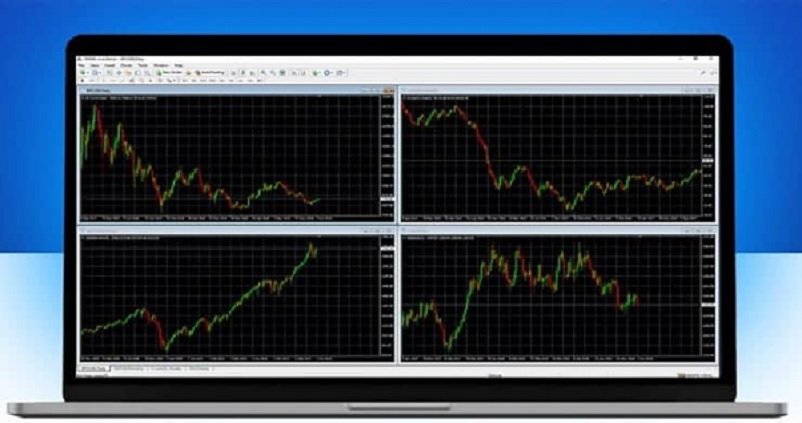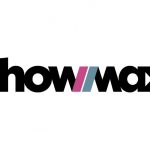Economy
How MT4 MAM Simplifies Trading for Multiple Accounts

Crucially important in financial markets, the MT4 Multi-Account Manager (MAM) application provides a simplified approach for effectively managing many accounts. MT4 MAM streamlines processes, therefore freeing users to concentrate on trading techniques and market research instead of administrative chores. Designed for professional traders and asset managers. Discover more about this powerful tool with AvaTrade’s detailed guide on the multi account manager system, which includes features like simultaneous trading and group trade functionalities integrated with MetaTrader4.
MT4 MAM is what?
Advanced functionality included into the MetaTrader 4 trading platform is the MT4 MAM. Through a single interface, it helps to manage many trading accounts so that asset managers may run block orders across all of them with one click.
Key Features of MT4 MAM
- Single-Click Execution: Allows for quick and synchronized trade execution across various accounts, enhancing response time to market movements.
- Allocation Methods: Supports several allocation methods including lot, percentage, and equity, to cater to different management strategies.
- Real-Time Management: Provides instant updates and access to performance data, aiding in swift decision-making processes.
Enhanced Benefits for Asset Managers and Professional Traders
MT4 MAM equips traders with the tools needed to manage several accounts efficiently, which is critical in leveraging market opportunities. The tool’s capability to integrate various trading strategies and its adaptability to client needs makes it a cornerstone for effective trading management.
Guide to Getting Started with MT4 MAM
To begin using MT4 MAM, traders need to:
- Select a broker that provides MT4 MAM functionality.
- Establish a master account and configure it according to the preferred trade allocation method.
- Link client accounts to the master account for centralized control and management.
Overcoming Common Challenges
Traders using MT4 MAM may face challenges such as risk diversification across accounts and adapting to rapid market changes. The tool’s built-in features like customizable allocation parameters and access to real-time market data support effective risk management and strategic adjustments.
Case Studies
Exploring real-life case studies of asset managers and professional traders who have successfully utilized MT4 MAM can provide valuable insights into practical applications of the tool in various market conditions.
MT4 Multi-Account Manager FAQs
- What’s MT4 MAM?
MT4 Multi-Account Manager (MAM) is a sophisticated MetaTrader 4 utility. It simplifies block order execution across several trading accounts for asset managers and professional traders.
- Who benefits from MT4 MAM?
MT4 MAM is meant for professional traders, asset managers, and financial advisers that handle several client trading accounts. It is particularly handy for fast, efficient transactions across many accounts.
- How does MT4 MAM single-click execution work?
MT4 MAM’s single-click execution lets traders place orders across multiple accounts. This capability is crucial in turbulent markets where rapid responses may affect trade results.
- What are the MT4 MAM allocation methods?
Multiple allocation mechanisms are supported by MT4 MAM:
- Each account receives a certain amount of lots for trading.
- Trades are allocated as a proportion of account equity.
- Equity Allocation: Each account’s equity percentage to all connected accounts determines trade distribution.
- Can MT4 MAM control risk?
Risk management elements are integrated into MT4 MAM. Asset managers may disperse risk by diversifying trading tactics across accounts using various allocation methodologies. Real-time management lets traders alter strategy to market circumstances.
The MT4 MAM tool simplifies the administration of many accounts, therefore providing major benefits. It is a necessary instrument in the toolkit of financial experts as its complete capabilities help professional traders and asset managers to enhance their trading efficiency, optimize tactics, and increase general performance.
Economy
NASD Unlisted Security Index Climbs 0.88%

By Adedapo Adesanya
The NASD Over-the-Counter (OTC) Securities Exchange maintained its upward trajectory with a further 0.88 per cent rise on Wednesday, March 3.
The expansion increased the NASD Unlisted Security Index (NSI) by 36.94 points to 4,256.41 points from 4,219.47 points, and lifted the market capitalisation by N22.10 billion to N2.546 trillion from Tuesday’s N2.524 trillion.
The six price gainers were responsible for the growth achieved by the unlisted securities market yesterday, with MRS Oil Plc adding N20.00 to trade at N230.00 per unit versus the previous day’s N210.00 per share.
Further, FrieslandCampina Wamco Nigeria Plc surged by N11.07 to N128.83 per share from N117.76 per share, Lagos Building Investment Company (LBIC) Plc grew by 37 Kobo to N4.12 per unit from N3.75 per unit, First Trust Mortgage Bank Plc advanced by 19 Kobo to N2.11 per share from N1.92 per share, Acorn Petroleum Plc rose by 1 Kobo to sell at N18.75 per unit versus the preceding day’s N18.74 per unit, and Acorn Petroleum Plc also gained 1 Kobo rise to sell at N1.35 per share versus N1.34 per share.
It was observed that two securities were in red at midweek, with Central Securities Clearing System (CSCS) Plc down by N1.56 to N82.59 per unit from N84.05 per unit, and Industrial and General Insurance (IGI) Plc down by 2 Kobo to 47 Kobo per share from 49 Kobo per share.
Yesterday, the volume of trades went up by 86.2 per cent to 2.6 million units from 1.4 million units, but the value of transactions deflated by 31.4 per cent to N64.1 million from N93.4 million, and the number of deals declined by 22.0 per cent to 46 deals from 59 deals.
CSCS Plc remained the most traded stock by value (year-to-date) with 36.4 million units valued at N2.2 billion, trailed by Okitipupa Plc with 6.3 million units traded for N1.1 billion, and Geo-Fluids Plc with 122.8 million units transacted for N480.4 million.
Resourcery Plc ended the day as the most traded stock by volume (year-to-date) with 1.05 billion units sold for N408.7 million, followed by Geo-Fluids Plc with 122.8 million units traded for N480.4 million, and CSCS Plc with 36.4 million units worth N2.2 billion.
Economy
Naira Falls to N1,387/$ at Official Market, N1,390/$1 at Parallel Market

By Adedapo Adesanya
For the 11th straight trading session, the Naira closed lower against the United States Dollar in the Nigerian Autonomous Foreign Exchange Market (NAFEX) on Wednesday, March 4.
At the official market, it lost N2.80 or 0.2 per cent against the greenback to close at N1,387.09/$1, i contrast to the N1,384.29/$1 it was traded a day earlier.
It also depreciated against the Pound Sterling in the same market window at midweek by N12.88 to quote at N1,855.10/£1 versus Tuesday’s rate of N1,842.22/£1, and weakened against the Euro by N9.08 to N1,615.27/€1 from N1,606.19/€1.
The Nigerian Naira depreciated against the US Dollar yesterday at the GTBank forex counter by N12 to sell for N1,385/$1 compared with the previous day’s N1,373/$1, and tumbled by N5 in the parallel market to close at N1,390/$1 compared with the preceding day’s N1,385/$1.
The exchange rate has been trending downward for almost two weeks, though it has been resistant to being in panic mode because it is still within its projected N1,350 to N1,450 per Dollar band.
Nigeria’s gross external reserves climbed to $49.693 billion from $49.604 billion, based on the latest data from the Central Bank of Nigeria (CBN).
Meanwhile, the cryptocurrency market recovered after weeks of consolidation, but traders remain divided over whether the move marks a genuine breakout or another trap for late buyers.
Analysts have pointed to heavy overhead supply and positioning in derivatives markets as potential risks, with some suggesting a rally could only attract sellers rather than confirm a sustained recovery.
Dogecoin (DOGE) gained 8.3 per cent to trade at $0.0962, Ethereum (ETH) appreciated by 7.9 per cent to $2,122.87, Bitcoin (BTC) added 6.3 per cent to sell for $72,438.50, Solana (SOL) improved by 6.2 per cent to $90.37, and Cardano (ADA) jumped 5.1 per cent to $0.2733.
Further, Ripple (XRP) rose by 4.9 per cent to $1.41, Binance Coin (BNB) soared by 3.2 per cent to $652.64, and Litecoin (LTC) surged by 2.7 per cent to $56.09, while the US Dollar Tether (USDT) and the US Dollar Coin (USDC) traded flat at $1.00 each.
Economy
Crude Oil Steady Despite Rising Iran War Risks, Shipping Disruption

By Adedapo Adesanya
Crude oil prices were largely unchanged on Wednesday as escalating US and Israel strikes against Iran widened regional tensions and halted shipping through the Strait of Hormuz.
Brent crude was at $81.40 per barrel, while the US West Texas Intermediate (WTI) crude gained 10 cents or 0.1 per cent to trade at $74.66 per barrel.
Despite not much movement in midweek, analysts say prices remain elevated as markets grapple with the prospect of a prolonged war and lingering supply disruptions.
The US government has signalled a four- to five-week campaign, but Iran is seeking to regionalise the conflict, and the crucial Strait of Hormuz chokepoint is effectively shut.
The New York Times reported that operatives from Iran’s Ministry of Intelligence signalled openness to the US Central Intelligence Agency to talks on ending the war.
On Wednesday, US Defence Secretary Pete Hegseth said America was winning the war against Iran and that the US military could fight as long as needed.
While all other options are being explored, forces from both the US and Israel have struck targets across Iran, prompting Iranian retaliatory strikes against energy infrastructure in a region that accounts for just under a third of global oil production.
Iraq, the second-largest crude producer in the Organisation of the Petroleum Exporting Countries (OPEC), has cut output by nearly 1.5 million barrels a day due to storage limits and the lack of an export route.
The US said it was working on plans to secure the Strait of Hormuz to ensure safety for oil tankers amid the war with Iran.
President Donald Trump on Tuesday said the country’s Navy could begin escorting oil tankers through the strait if necessary. He added that he had ordered the US International Development Finance Corporation to provide political risk insurance and financial guarantees for maritime trade in the Gulf.
Meanwhile, countries and companies have begun seeking alternative routes and supplies of crude. India and Indonesia said they were looking for other supplies, while some Chinese refineries were shutting or moving up maintenance plans.
The Energy Information Administration (EIA) said on Wednesday that crude stocks rose by 3.5 million barrels in the last week to their highest in three and a half years.
-

 Feature/OPED6 years ago
Feature/OPED6 years agoDavos was Different this year
-
Travel/Tourism10 years ago
Lagos Seals Western Lodge Hotel In Ikorodu
-

 Showbiz3 years ago
Showbiz3 years agoEstranged Lover Releases Videos of Empress Njamah Bathing
-

 Banking8 years ago
Banking8 years agoSort Codes of GTBank Branches in Nigeria
-

 Economy3 years ago
Economy3 years agoSubsidy Removal: CNG at N130 Per Litre Cheaper Than Petrol—IPMAN
-

 Banking3 years ago
Banking3 years agoSort Codes of UBA Branches in Nigeria
-

 Banking3 years ago
Banking3 years agoFirst Bank Announces Planned Downtime
-

 Sports3 years ago
Sports3 years agoHighest Paid Nigerian Footballer – How Much Do Nigerian Footballers Earn











